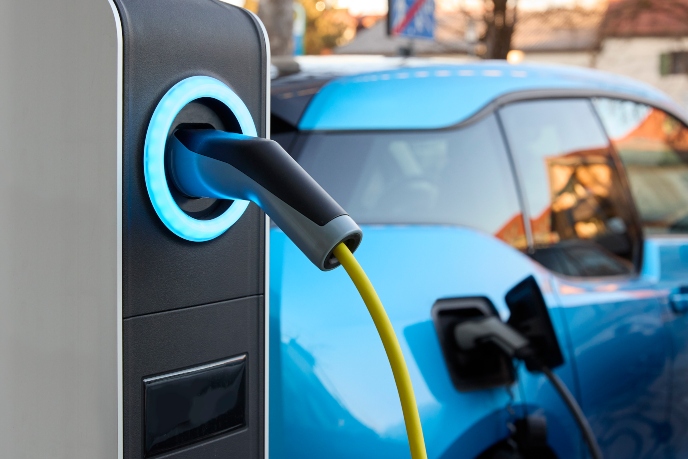With individuals and businesses across the world looking to make eco-friendly choices, many employers are now offering electric vehicles as part of their salary sacrifice car schemes.
In light of the UK Government’s goal to end the sale of new petrol and diesel vehicles by 2030, and tax cuts incentivising employees to opt for low emission vehicles, going electric is an even more attractive option – helping the pocket as well as the planet.
Here, the AMR payroll team answers all your questions about implementing an electric vehicle salary sacrifice scheme.
What is a salary sacrifice car scheme?
A salary sacrifice car scheme is an arrangement which allows employees to sacrifice part of their salary, in exchange for a brand-new car.

By giving up part of their pay before they have received it, employees benefit from a reduction in tax and National Insurance contributions. Employers will also make saving on their National Insurance contributions for each employee enrolled on a salary sacrifice scheme.
An electric vehicle salary sacrifice scheme works in the same way as other car salary sacrifice schemes, in that employees sacrifice part of their salary in exchange for the asset.
The tax benefits of offering electric vehicles salary sacrifice scheme
Salary sacrifice car schemes require employees to pay a benefit-in-kind tax (BiK) on their vehicles every year.
Both fully electric cars, and hybrid models can help your employees save thousands in BiK payments, compared to petrol or diesel cars.
The BIK charge for fully electric vehicles is only 2% for the 2022/23 financial year, in comparison to over 30% for most petrol and diesel vehicles. And the 2% rate is frozen until 2025.
Hybrid cars are also charged at a lower rate, but the rate may be higher than 2% depending on the vehicle’s CO2 emissions figure.
BiK tax should be deducted from your employees’ wages through your PAYE software.
How to set up an electric vehicle salary sacrifice scheme
Electric vehicle salary sacrifice schemes offer great benefits to both employers and employees. So, how do you set up a salary sacrifice scheme on your PAYE software, and what do you need to consider?
Change your employees’ contract accordingly
First, you need to change the terms of the employment contracts of all participating employees to reflect the salary sacrifice arrangement. Each employee needs to agree to the change in their contract.
Please note that an employee cannot take part in a salary sacrifice scheme if it will reduce their cash earnings to below the National Minimum Wage. Employers must put caps in place to ensure that National Minimal Wage rates are maintained.
Calculate the benefit-in-kind payments for electric or hybrid company cars
Salary sacrifice cars are still eligible for BiK tax, even though the car is owned by the employee, and is their responsibility. This additional tax can be deducted from your employee’s wages along with the monthly lease cost of the vehicle. If you want to check how much BIK tax you should be deducting from your employees’ wages for electric and hybrid company cars, use HMRC’s Company Car and Fuel Benefit Calculator.
Calculate the effect on your tax and National Insurance contributions
Salary sacrifice schemes can reduce the amount of tax and National Insurance contributions your employees are required to pay. As a payroll operator, you need to know each employee’s pay, as well as the value of the non-cash benefit, to calculate reductions to tax and national insurance contributions correctly.
For salary sacrifice arrangements involving non-cash benefits like electric cars, you need to work out the value of the benefit by looking at the higher of:
- The amount of the salary that has been given up
- The earnings charge under the normal BiK rules
For cars with CO2 emissions of 75g/km or less (electric vehicles or hybrid electric vehicles are likely to have CO2 emissions below 75g/km), you should always use the earnings charge under the normal BiK rules.
Report non-cash benefits to HMRC
Employers are required to report non-cash benefits to HMRC at the end of each tax year.
This can usually be done using your commercial payroll software. If your software does not allow this function, then you will need to complete a P11D form.
All employers are then required to submit a further P11D(b) form to HMRC, which declares the class 1A National Insurance contributions you have paid on all benefits.
If you need help with setting up a salary sacrifice arrangement, or with any aspect of your payroll and bookkeeping, get in touch with the AMR Bookkeeping Solutions team. We provide exceptional, efficient and personal bookkeeping service tailored to the very individual needs of your business. Call +44 (1892) 489668 to find out more.







